This article is related about, What is insomnia? Types of insomnia, How can stop insomnia? Can insomnia be cured? Causes, Symptoms, Diagnosis, Treatment of insomnia.
WHAT IS INSOMNIA?CAUSES,TYPES OF INSOMNIA, SYMPTOMS, DIAGNOSIS AND TREATMENT:
- INSOMNIA DEF:
- TYPES OF INSOMNIA
- INSOMNIA CAN BE STOPED
- INSOMNIA BE CURED
- CAUSES OF INSOMNIA
- SYMPTOMS OF INSOMNIA.
- TREATMENT
1- Insomnia is a sleep disorder when you have trouble falling and / or falling asleep.
2- Insomnia is a common sleep disorder that can make it difficult to fall asleep, difficult to fall asleep, or make you wake up too early and you may not be able to return to sleep. You may feel tired when you wake up. Insomnia can reduce not only your energy and energy levels but also your health, performance and quality of life.
Adequate sleep varies from person to person, but most adults need seven to eight hours of sleep a night.
The condition can be temporary (acute) or permanent (chronic). It may also come and go.
Severe insomnia:
Lasts 1 night to a few weeks.
Long-term insomnia:
If it occurs at least three nights a week for three months or more.
TYPES OF INSOMNIA:
There are two types of insomnia: first and second.
Basic/First Insomnia:
This means that your sleep problems are not linked to any other health condition or problem.
Second insomnia:
This means that you have trouble sleeping due to a health condition (such as asthma, depression, arthritis, cancer, or heartburn); pain; medicines; or drug use (such as alcohol).
CAUSES OF INSOMNIA:
Insomnia may be a major problem, or it may be linked to other conditions.
Chronic insomnia:
often results from stress, life events, or sleep disturbances. Treating the underlying cause can resolve insomnia, but sometimes it can last for years.
Common causes of chronic insomnia include:
Depression:
Anxiety about work, school, health, finances, or family can keep your mind active at night, making it harder for you to sleep. Stressful or traumatic life events - such as the death or illness of a loved one, divorce, or loss of employment - can also lead to awareness.
Travel Or Work Time:
Your circadian rhythm acts like an internal clock, which directs things like your sleep cycle, body, and body temperature. Disrupting the rhythm of your body can lead to awareness. Causes include jet lag from traveling to multiple time zones, running fast or starting time, or changing frequently.
Bad Sleep Habits:
Include irregular bedtime, sleep deprivation, stimulant activities before bedtime, a poor night's sleep, and using your bed to work, eat or watch TV. Computers, TVs, video games, smartphones or other screens just before bedtime can interfere with your sleep cycle.
Late Dinner:
Having a light snack before bed is fine, but eating too much can make you feel uncomfortable while lying on the floor. Many people also experience heartburn, acid reflux and food from the stomach into the throat after eating, which can keep you awake.
Chronic insomnia may be associated with medical conditions or the use of certain medications. Medical treatment can help improve sleep, but insomnia can continue after the health condition has improved.
Additional causes of insomnia include:
Mental disorders:
Anxiety disorders, such as post-traumatic stress disorder, can interfere with your sleep. Getting up early in the morning can be a sign of discouragement. Insomnia often comes with other mental health disorders.
Medications:
Many prescription drugs can interfere with sleep, such as certain anti-depressants and medications for asthma or high blood pressure. Many over-the-counter medications - such as painkillers, antidepressants, and weight-loss products - contain caffeine and other stimulants that can interfere with sleep.
Medical conditions:
Examples of insomnia-related conditions include chronic pain, cancer, diabetes, heart disease, asthma, gastroesophageal reflux disease (GERD), overactive thyroid, Parkinson's disease and Alzheimer's disease.
Sleep-related problems:
Sleep apnea causes you to stop breathing occasionally throughout the night, disrupting your sleep. Restless legs syndrome causes unpleasant sensations in your legs and an uncontrollable urge to move it, which can prevent you from falling asleep.
Caffeine:
Nicotine and alcohol. Coffee, tea, cola and other caffeinated beverages are stimulants. Drinking them in the afternoon or evening can keep you awake at night. Nicotine in tobacco products is another stimulant that can interfere with sleep. Alcohol can help you fall asleep, but it prevents deep sleep stages and often causes waking up in the middle of the night.
Risk Factors Features:
Insomnia affects women more than men and people much older than younger people. Young and middle-aged Americans are also at high risk.
Other risks include:
Chronic illness
Mental health problems
Working night shifts or rotating shifts
Symptoms Of Insomnia:
Symptoms of insomnia may include:
- It's hard to sleep at night
- Waking up at night
- Getting up very early in the morning
- Not feeling well after a good night's sleep
- Daytime fatigue or sleepiness
- Anger, depression or anxiety
- It’s hard to pay attention, focus on activities or remember
- Increased errors or risks
- Continued anxiety about sleep
- Sleep during the day
- Fatigue
- Tiredness
- Problems with concentration or memory
Can My Treatment Of Insomnia Be Cured?
Certainly. It may not be easy, however, as treatment for insomnia often means improving your sleep hygiene and establishing habits that allow for good sleep. And the habits, especially the habits you follow every day, can be difficult to break.
But it is possible. And according to , every little step you take to get a good night's sleep is important.
"I think people are underestimating how helpful it is to make small changes in their habits,. "Even if it is difficult to change those habits, changing them gradually over time can improve a person's sleep."
TREATMENT OF INSOMNIA:
Changing your sleep habits and dealing with any problems that may be associated with insomnia, such as depression, medical conditions, or medication, can restore sleep for most people. If these measures do not work, your doctor may recommend behavioral therapy, medication or both, to help improve rest and sleep.
Behavioral psychotherapy for insomnia:
Behavioral psychiatric treatment (CBT-I) can help you control or eliminate negative thoughts and actions that keep you awake and is often recommended as the first line of treatment for insomnia. Generally, CBT-I is more effective or more effective than sleeping pills.
The cognitive part of CBT-I teaches you to identify and change beliefs that affect your sleep ability. It can help you to control or eliminate negative thoughts and worries that keep you awake. It can also include ending a cycle that can develop where you are so preoccupied with sleep that you cannot sleep.
The CBT-I behavioral component helps you develop good sleep habits and protect behaviors that keep you awake. Strategies include, for example:
Power control therapy:
This method helps to remove things that put your mind at rest against sleep. For example, you can be trained to set a consistent bedtime and wake-up time and avoid sleep, use the bed only for sex, and leave the bedroom if you can not sleep within 20 minutes, only to return when you are asleep.
Relaxation techniques:
Continuous muscle relaxation, biofeedback exercises and breathing are ways to reduce anxiety during sleep. Practicing these techniques can help you to control your breathing, heart rate, muscle tone, and mood so that you can relax.
Sleep restriction:
This treatment reduces the amount of time you spend in bed and avoids daytime sleepiness, resulting in partial sleep deprivation, making you more tired the next night. As your sleep improves, your time in bed gradually increases.
Staying awake:
Also known as the paradoxical purpose, this educated insomnia treatment aims to reduce the anxiety and worry about being able to sleep in bed and try to stay awake rather than expect to sleep.
Easy treatment:
If you go to bed early and wake up very early in the morning, you can use the light to turn your interior clock back on. You can go outside during the seasons when it is light outside in the evening, or you can use a light box. Talk to your doctor about recommendations.
Your doctor may recommend other techniques related to your lifestyle and sleep environment to help you develop habits that promote sound sleep and daytime alertness.
Medication:
Doctor's sleeping pills can help you fall asleep, sleep or both. Doctors generally do not recommend relying on prescription sleeping pills for more than a few weeks, but there are several medications that are approved for long-term use.
Examples include:
Eszopiclone (Lunesta)
Ramelteon (Rozerem)
Zaleplon (Sonata)
Zolpidem (Ambien, Edluar, Intermezzo, Zolpimist)
Prescription sleeping pills can have side effects, such as causing daytime bloating and increasing the risk of falls, or they can develop habits, so talk to your doctor about these medications and other possible side effects.
Sleeping services for over the counter
Unwritten sleeping pills contain antihistamines that can cause drowsiness, but are not intended for regular use. Talk to your doctor before taking this, as antihistamines can cause side effects, such as daytime sleepiness, dizziness, confusion, depression and difficulty urinating, which can be very bad for adults.
INSOMNIA TREATMENT BY HOMOEOPATHY:
Advanced Homeopathic Remedies for Insomnia:
1. Kali Phos
For Insomnia due to Stress / Worries
Kali Phos is a very effective antidepressant. Insomnia from stress and anxiety, insomnia (especially during the last part of the night), excessive yawning, sadness, sadness, extreme mental and physical fatigue and sudden sleep deprivation in children due to nightmares are common symptoms that indicate the need for a Kali Phos dose of insomnia.
Key pointers for using Kali Phos for Insomnia:
- Insomnia due to stress / anxiety
- Sleep deprivation during the last half of the night
- Nightmares in children that cause disturbed sleep
2. Coffea Cruda
For Insomnia due to Unchanging Thoughts
Coffea Cruda, is an invaluable insomnia that comes from the mind. At bedtime, many thoughts are full of thoughts. The person stays restless at night and feels sleepless, tossing to and fro. Panic and panic can arise. The drug is also useful for children who play at night and do not sleep.
Coffea Cruda has also been shown to wake up early in the morning (usually around 3:00 am) with difficulty sleeping again. Insomnia during the recovery phase (i.e., during the recovery of a specific illness) is treated with Coffea Cruda. This tool also provides help in disturbed sleep situations from many dreams.
Key Indications for Using Coffea Cruda for Insomnia:
- insomnia from endless thoughts in the mind
- waking up in the morning is hard to fall asleep again
- sleep disturbances from many dreams
3. Ignatia Amara
Insomnia From Sadness, Depression
Ignatia Amara is a remedy for insomnia and depression. Someone who needs Ignatia Amara is depressed and full of worries and anxieties. He may fall into the deep depression of sleep deprivation. Other symptoms include a feeling of loneliness, crying, and sadness. One is still thinking about the tragic events of the past. Overcrowding, murmuring, and indifferent behavior are also possible.
Key pointers for using Ignatia Amara for Insomnia:
- insomnia due to grief, depression
- You care about yourself and you worry
- Sadness, crying, anger
- Other Essential Remedies for Insomnia
4. Pulsatilla Nigr
Insomnia during the first half of the night
Pulsatilla Nigricans are prepared from this plant called the 'flowerflower' of the natural order Ranunculaceae.
The Pulsatilla Nigricans is an insomnia that occurs in the middle of the first half of the night. The person stays awake and does not rest during the first half of the night. Planned thoughts continue to circulate in the mind that prevent sleep.
Excessive rest is present as well as insomnia. The person ends up falling asleep at night (early in the morning). A person wakes up feeling tired and may experience excessive yawning and sleep during the day.
5. Nux Vomica
-For Insomnia during Latter Half Night
Nux Vomica is an important insomnia when sleep occurs during the second half of the night. Someone who needs a Nux Vomica has no problem sleeping, but wakes up around 3:00 am - 4:00 am after which sleep becomes difficult. During the day, there is intense drowsiness, fatigue and weakness. Nux Vomica also works in situations where sleep is not audible, and a person often wakes up. It also treats sleep disorders linked to excessive coffee or alcohol or tobacco stimulants. Insomnia due to stomach problems is also an indication of the use of homeopathic medicine Nux Vomica.
6. Arsenic Album
For Insomnia Related to Anxiety
Arsenic Album is a useful antidepressant drug linked to anxiety. There are concerns about health issues, the future and the well-being of the family. Anxiety is worse after midnight. As well as anxiety, excessive rest can be present. The man keeps throwing and turning in bed at night. Instability also occurs during the day with continuous movement from one place to another, with a feeling of eye fatigue.
7. Chamomilla Vulgaris - Sleep Disrupted Dreadful Dreams
Chamomilla Vulgaris is a natural herb prepared from the plant ‘German Chamomile.’ It belongs to the Combined plant family. Chamomilla Vulgaris is an important remedy for disturbed sleep resulting from nightmares. One wakes up suddenly at the beginning; and weep or be afraid.
These episodes occur several times during the night leading to disturbed sleep. The person does not sleep until 2:00 in the morning. Insomnia due to deception and vision is another indication of the use of the homeopathic remedy Chamomilla Vulgaris. A person may become irritable and sleep during the day.
8. Opium - For Insomnia When a Person Is Sleeping but Can't Sleep
Opium is an antidepressant when a person feels sleepy but cannot sleep. He can stay awake for a long time, no rest at night by constantly throwing and falling on the bed. A person may be able to hear, and small noises can disturb a person and cause him to fall asleep.
9. Calcarea Carb - No More Night Sleep
Calcarea Carb is another excellent antidepressant. A person who needs Calcarea Carb does not sleep at night and will be very sleepy during the day. He can sleep for a short time, and see a sleepless post 2 am. At night, a warm sensation, numbness, and swelling in the head appear as a result of insomnia. A person often feels tired in the morning with the urge to sleep, and the head may feel heavy.
10. Robinia - Insomnia due to GERD
Robinia is prepared from this plant known as the ‘yellow locust.’ The natural order of this plant is Leguminosae. A person who needs Robinia suffers from GERD and experiences worse night symptoms, which interfere with sleep. Symptoms such as heartburn and sore throats become worse at night, disturbing sleep. Homeopathic medicine Robinia treats GERD and its symptoms of acid reflux, and this often solves the problem of disturbed sleep.
11. Rhus Tox - Sleep Disorders In Chronic Pain
Rhus Tox is an effective treatment for sleep disorders caused by chronic pain. A person who needs Rhus Tox suffers from chronic pain in the joints or back (especially during rest). The intensity of pain during rest disrupts sleep, and the person continues to throw in bed unsteadily because of the pain.
12. Zincum Met
For Insomnia due to Restless Leg Syndrome
Zincum Met is a remedy for chronic leg pain that leads to trouble sleeping. A person who needs this medication experiences discomfort in the feet or lower limbs. They keep moving, and this discomfort is worse at night. The lower limbs also feel heavier. In some cases pain and swelling in the legs appear. The formication (feeling like insects crawling on the skin) of the feet at night can also be present.
13. Passiflora Incarnata
Passiflora Incarnata is the most widely prescribed antidepressant treatment for the elderly. This tree is prepared from a plant called 'passion flower' which is a natural order Passifloraceae.
Anyone who needs Pasiflora Incarnata stays awake and does not rest at night. Mental disorders can also be caused by insomnia. This drug is also indicated for insomnia in children.
14. Cina - Child Sleep Disorders
Cina is a plant prepared from a plant called 'Artemisia maritime' belonging to the Family Composite. Cina is effective in treating insomnia in children. Its use is considered when the child is unable to sleep and is prone to screaming and crying in pajamas.
The child is bright, irritable and restless. Cina is also shown in children who fall asleep for a while, or in cases where the child experiences nightmares and wakes up screaming and panic.
Always use homoeopathy medicines with doctor's advise, and complete symptoms ,family history.
Thanks for reviewing my article for more detail visit my channel:



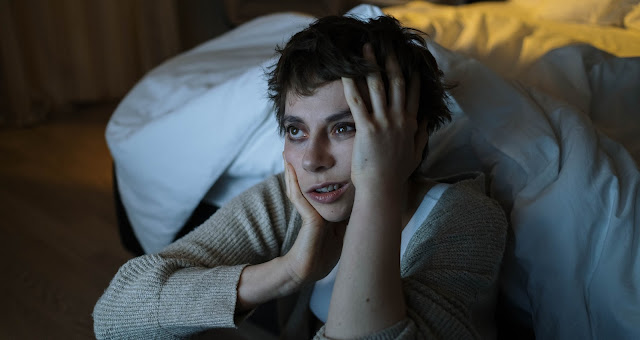


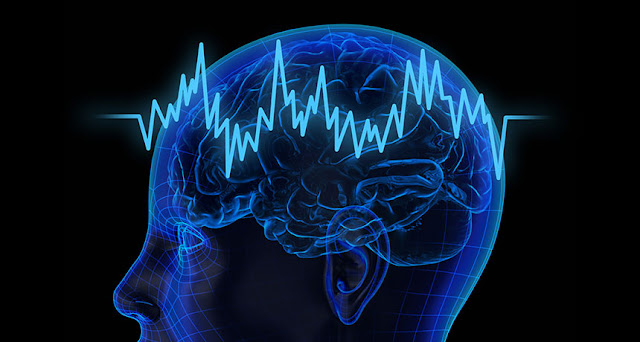
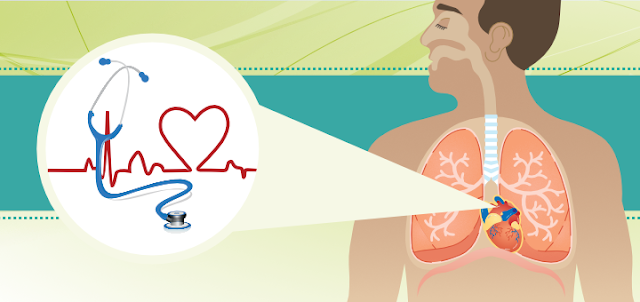
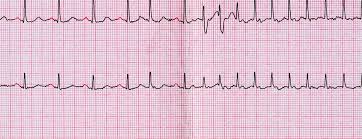

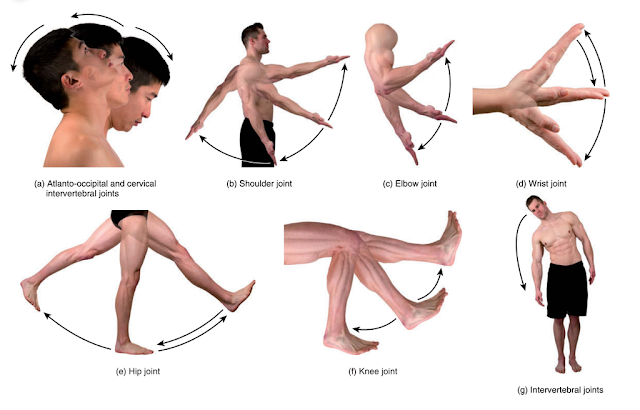










2 Comments
Mashallah,well done dear sister
ReplyDeleteMashllah Great work Dr allah apko bhot bhot tarqi ata farmiy aemen ❤❤❤❤
ReplyDelete